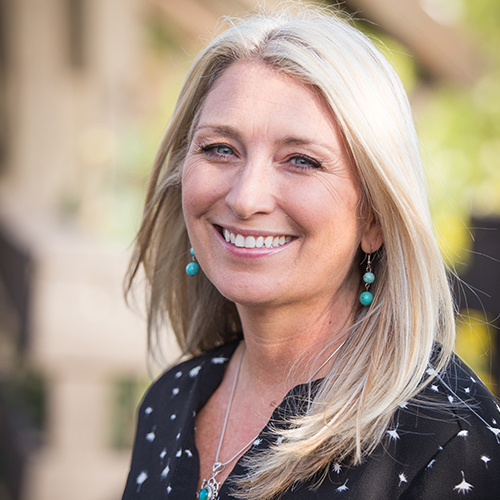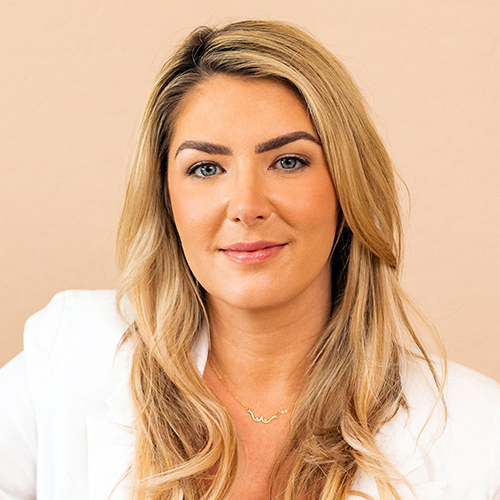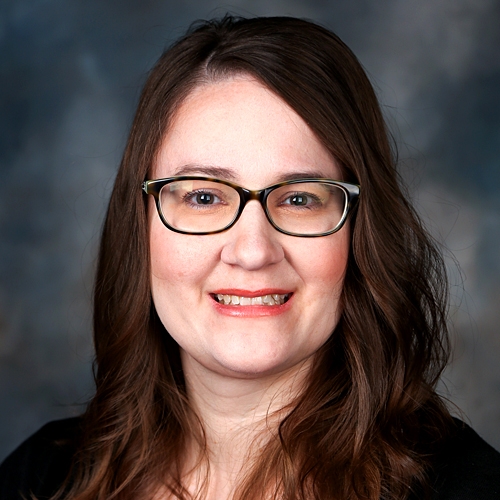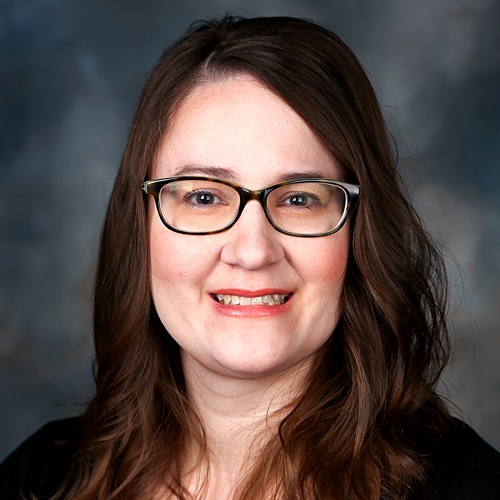 IBCLC Detailed Content Outline: Development and Nutrition / Infant Focused CERPs - Section I A
IBCLC Detailed Content Outline: Development and Nutrition / Infant Focused CERPs - Section I A
Access CERPs on Development and Nutrition / Infant for the IBCLC Detailed Content Outline recertification requirements. On-demand viewing of the latest Development and Nutrition / Infant focused IBCLC CERPs at your own pace.


Divya Sinha Parikh MD, IBCLC, FAAP is a board certified pediatrician practicing in Columbus, OH. She received her medical training at The University of Pittsburgh School of Medicine and completed her residency in general pediatrics at Rainbow Babies and Children’s Hospital at Case Western Reserve University. During residency, she created a breastfeeding medicine clinical rotation.
Within her practice, she has extensive experience managing lactation concerns and has taken a special interest in mentoring current and aspiring breastfeeding providers. She has presented her work at local and national meetings.
Rachel Walker received her master’s degree in exercise science and wellness from Old Dominion University and a PhD in nutritional sciences from Penn State University. Her PhD work focused on lipid metabolism and insulin resistance. She has over 3 years of experience teaching both nutrition and exercise science courses.
In 2020, she was selected for a research fellowship from the United States Department of Agriculture for her study, ‘The Role of Metabolic Health and Lipid Metabolism in Human Lactation and Milk Composition’. Her current research is focused on the effects of insulin resistance during pregnancy and lactation, especially with the goal of developing therapies to improve lactation.
She has presented her research at numerous national meetings. Rachel’s proudest achievement is becoming Mommy to her 3 children, Clark, Lee, and Nora.
The fat content of breastmilk is remarkably important for infant health outcomes. Therefore, it is important to understand what factors affect breastmilk fat profile. Total fat is the main determinant of energy in breastmilk, and varies with time of day, length of lactation, and duration of the feed. Maternal factors also influence milk fat, including BMI, parity, and diabetes. Long-chain polyunsaturated fatty acids, like docosahexaenoic acid and arachidonic acid, are vital to the structure and development of the infant brain, and attaining the correct balance is important for optimal development. Breastmilk fatty acid concentration, especially the polyunsaturated fatty acids docosahexaenoic acid and arachidonic acid, are vital to infant brain development. Fatty acid concentrations primarily depend on diet and vary significantly between populations, but other maternal factors can also affect the fatty acid content of breastmilk.
Breastmilk fat content has significant implications for clinical practice. First, it is necessary to optimize clinical methods for human milk fat measurement, such as bedside human milk analyzers. Second, understanding milk fat variation will help optimize breastmilk fortification for infants in neonatal intensive care units. Finally, variability in donor milk also makes estimation of fat and energy in milk banks difficult, with important clinical implications for preterm infants who cannot receive mother’s own milk.

View Details / Enroll

Bridging the Gap: Case Studies in Community Based Lactation Care

Shonte' Terhune-Smith is an International Board Certified Lactation Consultant, postpartum doula and health educator. Over the past 10 years, she has worked diligently in Genesee County to increase breastfeeding rates. She has worked for WIC, in the hospital as a lactation intern and at various pediatric and obstetrician clinics, promoting and educating women about breastfeeding. Normalizing breastfeeding is her passion. Shonte' is the owner of, You Overcoming Lactation Obstacles (YOLO). She empowers and provides timely, culturally competent, evidence-based breastfeeding support and services to Genesee County families and surrounding areas. Shonte' understands that breastfeeding works better when the mother has a village of support to overcome the barriers families face. She is also co-founder of Southeast Michigan IBCLC's of Color.
While breastfeeding initiation rates have increased over the years, there continues to be disparities in duration rates, specifically amongst black and brown families. After families are discharged from the hospital, there is a gap in connecting with equitable outpatient resources. Follow-up appointments after hospital discharge may be days or sometimes weeks away and in that time, difficulties with latching, engorgement, weight loss, and other issues, can spiral out of control. This presentation will demonstrate how these gaps can be bridged with referrals and partnerships with hospitals and providers, with case studies that show how they can positively impact breastfeeding outcomes.

View Details / Enroll

Can a Baby Be Allergic to Breastmilk?: Sensitivities, Allergies, Galactosemia, and Lactose Intolerance

Laurel Wilson, IBCLC, CLE, CCCE, CLD is a TEDx and international speaker, author, pregnancy and lactation expert, and consultant. She served as the Executive Director of Lactation Programs for CAPPA, the Childbirth and Postpartum Professional Association for 16 years and now is on the Senior Advisor Board. She served on the Board of Directors for the United States Breastfeeding Committee from 2016-2019. She also is on the Advisory Board for InJoy Health. She owns MotherJourney, focusing on training perinatal professionals on integrative and holistic information regarding pregnancy, childbirth, and breastfeeding. She has her degree in Maternal Child Health: Lactation Consulting and is an internationally board certified lactation consultant. As the co-author of two books, The Attachment Pregnancy and The Greatest Pregnancy Ever, original Editor of the CAPPA Lactation Educator Manual, and contributing author to Round the Circle: Doulas Talk About Themselves, she loves to blend today’s recent scientific findings with the mind/body/spirit wisdom. Laurel has been joyfully married to her husband for nearly three decades and has two wonderful grown sons, whose difficult births led her on a path towards helping emerging families create positive experiences. She believes that the journey into parenthood is a life-changing rite of passage that should be deeply honored and celebrated.
Topic: Epigenetics and Breastfeeding: The Potential Longterm Impact of Breastmilk - [View Abstract]
Topic: Hold the Phone! Diet Does Matter During Breastfeeding: Implication of Diet on Fatty Acid Composition and Other Nutrients - [View Abstract]
Topic: Postpartum Mood Disorders, Breastfeeding and the Epigenetic Links from Past Into Future - [View Abstract]
Topic: Talk To Me: How Breastmilk Acts as a Communication and Gene Expression Tool Between Mother and Child - [View Abstract]
Topic: The Milk Sharing Conundrum - The Grey Area Between Scope and Need - [View Abstract]
Topic: The Placenta and Breastmilk-Unraveling the Mysterious World of the Intelligent Organs that Protect our Babies - [View Abstract]
Topic: Understanding Zika and Lyme and Breastfeeding - [View Abstract]
Topic: Unraveling the Mysteries of Human Milk: The Fascinating Role of Neohormones, Epigenetics, the Microbiome and More! - [View Abstract]
Lactation professionals often hear from their clients that their breastfed babies have been diagnosed as lactose intolerance. This lack of understanding regarding types of lactose intolerance and potential issues with breastfeeding involving the newborn gut often lead to a cessation of breastfeeding. This session will cover the three main types of lactose intolerance, as well as galactosemia. Maternal gut damage and protein sensitivity and how that can impact the breastfed baby will also be addressed. Attendees will also learn about the most common foods that cause food sensitivity and allergy and what referrals are best made with these issues.


Jacqueline Kincer is the founder of Holistic Lactation where she runs a busy practice, manufacturers herbal supplements for lactation, and supports breastfeeding families worldwide. She's also the host of the podcast Breastfeeding Talk: Milk. Mindset. Motherhood. and creator of the online breastfeeding community, The Nurture Collective. Jacqueline's passion has been to create functional breastfeeding outcomes and expand access to lactation knowledge across the globe.
Topic: Inside the Infant Mouth: Oral Assessment & Function - [View Abstract]
Topic: Tongue Tied Untied: Creating Functional Breastfeeding Outcomes - [View Abstract]
Developing a step-by-step care plan is arguably the most important part of patient care. Without it, necessary treatments may be neglected. As lactation providers, it is our role to set proper expectations for our clients, as well as measure clinical improvement and patient outcomes. When working with infants that struggle with sucking or other oral function issues, there is a process and a timeline we can put together that will guide the care we are giving. In this presentation you will learn how to provide guidance to your clients as you help them work through their infant’s oral function challenges.

View Details / Enroll


M. Petrea Cober, PharmD, BCNSP, BCPPS, attended the University of Tennessee, College of Pharmacy in Memphis, Tennessee. She completed her PGY1 Pharmacy Residency at Penn State Milton S. Hershey Medical Center in Hershey, Pennsylvania, and her PGY2 Pharmacy Residency in Pediatrics at the University of Michigan Hospitals and Health System in Ann Arbor, Michigan. She is currently the Clinical Coordinator - Neonatal Intensive Care Unit and PGY1 Residency Program Director at Akron Children's Hospital where she provides clinical services and precepts pharmacy students, PGY1 pharmacy residents, and PGY3 medical pediatric residents. She is also the Section Lead for Specialty Care and an Associate Professor in the Department of Pharmacy Practice at Northeast Ohio Medical University (NEOMED). Her didactic teaching is in the areas of pediatrics, women’s health, and nutrition. Dr. Cober's expertise is in pediatric pharmacotherapy, nutrition, ethanol lock therapy, and management of patients with intestinal failure. She is active in local, state, and national pharmacy organizations.
Critically ill neonates and infants are often unable to maintain adequate nutrition through the enteral route and require parenteral nutrition. Due to their increased nutritional needs, small size, and limited overall fluid intake, neonatal/infant parenteral nutrition requires specialized knowledge of stability and compatibility of parenteral nutrition macronutrients and micronutrients. Special attention will be given to issues involving protein requirements, glucose infuse rates, provision of lipid injectable emulsions utilizing newer products, calcium and phosphate compatibility, and challenges with limited intravenous access.

View Details / Enroll


Jim Thigpen has been a pediatric clinical pharmacist for 30 years and is currently an associate professor of pharmacy at East Tennessee State University Bill Gatton College of Pharmacy. When he began his training at MUSC in Charleston, SC, they were investigating Survanta and he has been witness to and a participant in the evolving world of neonatology since. He has spoken at several neonatal nursing conferences over the years and enjoys helping other practitioners learn about and apply pharmacotherapy in this special population.
Topic: Clinical Pain Management in the Neonate - [View Abstract]
Topic: Pharmacotherapy for Hemodynamic Instability in Neonates - [View Abstract]
When faced with a potential neonatal infection, it is critical to choose the correct antibiotic(s) for the situation. Considering the environment of antibiotic resistance and some of the limitations for antibiotic use in this fragile population, selecting the right drug, dose, interval and monitoring parameters can be life and death decisions. This presentation will help the learner understand the complexities of this problem and provide them with the tools to provide state-of-the-art medical care.


Dr. Prescott is currently and Assistant Professor at the University of South Florida and the Assistant Director of the College of Nursing's Biobehavioral Lab. Her research centers around the maternal and neonatal microbiota and it's interaction with host immunity to impact growth and metabolism. She has been a neonatal nurse practitioner since 2010, completed her PhD at the University of Virginia in partnership with the National Institutes of Health. Her postdoctoral work at the National Cancer Institute assessed perinatal antibiotics on the microbiome of mothers and their offspring. She has written several educational and review articles addressing the management of neonates with cardiovascular disease.
Nurses and providers often encounter neonates with prenatally diagnosed or undiagnosed cardiovascular disease in the delivery room, well-baby nursery, or neonatal intensive care unit. Distinguishing between respiratory and cardiovascular disease is imperative for proper management. In this talk, I will review normal fetal, neonatal, and transitional circulation, and critical congenital heart diseases, their early presentation and initial treatment strategies. I will also discuss the cardiovascular implications and management strategies of common delivery complications and of prematurity.


Julie Matheney knew when she was ten years old that she wanted to feed babies for a living. She earned her Masters in speech-language pathology and has worked with feeding and swallowing disorders for over a decade. While most people assume speech therapists teach children who stutter or work on ""r's and s's"", the bulk of her job is feeding and swallowing as part of a hospital based, rehabilitation team. The same things you speak with, you eat with! Over the past decade working in the NICU, she discovered her passion for working with breastfeeding families and became an IBCLC in 2018.
She transitioned out of the hospital in July 2021 and currently works full time in private practice as a lactation consultant in Los Angeles. She enjoys helping the whole family in the feeding process to meet their goals.
Her loving husband is always supportive of her in her vocational passions and was instrumental in launching her private practice. She has two young daughters, both of whom were exclusively breastfed until two years old.
Topic: Overcoming Challenges to Feeding: Supporting Parents with Physical, Mental or Socioemotional Differences - Part 1 - [View Abstract]
Topic: Overcoming Challenges to Feeding: Supporting Parents with Physical, Mental or Socioemotional Differences - Part 2 - [View Abstract]
The human body is intricate and fascinating. Anatomy (what it looks like) determines physiology (what it does). Sometimes anatomy, because of its variable nature, can cause changes in anticipated physiology which results in clinical symptoms. This presentation focuses on how symptoms give us clues about anatomy and physiology of the breast through the lens of several clinical case studies.


Dr. Andrew Dorough is a native of St. Louis, Missouri. He attended Westminster College in Fulton, Missouri, and graduated with a Bachelor of Science in biology. He then earned his Doctor of Chiropractic Degree from Logan College of Chiropractic in St. Louis, Missouri. He later earned a post-graduate certification from the International Chiropractic Pediatric Association (CACCP). He is qualified to deliver highly skilled and safe treatment to pregnant and postnatal patients and to neonatal and infant patients. Dr. Dorough enjoys providing collaborative care. He currently works in a family medicine clinic which boasts a breastfeeding medicine physician IBCLC, along with other IBCLCs, two nurse practitioners and a physician assistant. He assesses and treats infants with various forms of structural issues, including but not limited to cranial bone deformation (plagiocephaly), torticollis, and tongue and neck dysfunction, as related to feeding difficulties and infant well-being.
Topic: Collaborative Care With a Chiropractor for Infant Feeding Dysfunction - [View Abstract]
Evidence suggests that trauma during pregnancy, labor and delivery may be a contributing factor to soft tissue and joint restrictions that affect an infant’s inability to latch and effectively transfer milk. How can lactation and medical experts identify the signs of dysfunctional movements that contribute to feeding dysfunction? To what extent can chiropractic care, within a collaborative model, safely and effectively help to correct feeding dysfunction? This session will enable attendees to elicit a more careful history, and to notice often overlooked signs that cannot be resolved with better breastfeeding management, but rather, indicate referral to a pediatric chiropractor.


Nancy Mohrbacher was born and raised in the Chicago area, where she lives today. She is a board-certified lactation consultant who has been helping nursing mothers since 1982. Her breastfeeding books for parents and professionals include Breastfeeding Answers Made Simple and its Pocket Guide; Breastfeeding Made Simple(with Kathleen Kendall-Tackett); Working and Breastfeeding Made Simple; and Breastfeeding Solutions and its companion app for Android and iPhone.
Nancy currently contracts with hospitals to improve breastfeeding practices, writes for many publications, and speaks at events around the world. Nancy was in the first group of 16 to be honored for her lifetime contributions to breastfeeding with the designation FILCA, Fellow of the International Lactation Consultant Association.
Topic: Applying Bioethics to Milk Banking and Milk Sharing - [View Abstract]
Topic: Concerns About Low Milk Production - [View Abstract]
Topic: Transitioning the Preterm Infant to the Breast - [View Abstract]
Topic: Using Gravity-Assisted Positions to Prevent Early Breastfeeding Problems - [View Abstract]
Topic: What Mothers Need to Exclusively Breastfeed - [View Abstract]
Topic: What's New In Lactation - [View Abstract]
This talk provides an analysis of the challenges associated with assessing milk adequacy during the hospital stay, the need for supplements, and when supplements are needed, recommended feeding volumes and methods. It also includes strategies for helping employed mothers use the Magic Number concept to keep milk supply steady long term and planning tips for the next baby when a mother had previous milk-production issues.













